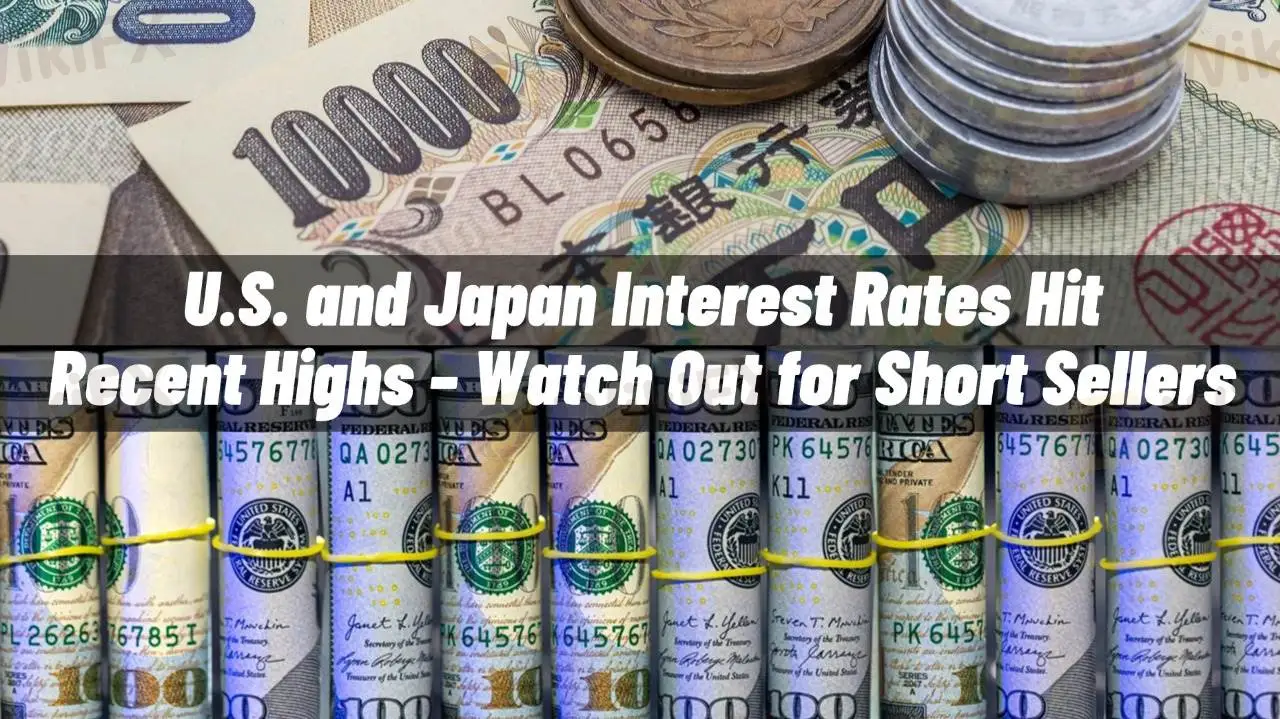简体中文
繁體中文
English
Pусский
日本語
ภาษาไทย
Tiếng Việt
Bahasa Indonesia
Español
हिन्दी
Filippiiniläinen
Français
Deutsch
Português
Türkçe
한국어
العربية
U.S. and Japan Interest Rates Hit Recent Highs – Watch Out for Short Sellers
Abstract:USD/JPY briefly surged past the 150 level, driven by strong U.S. economic data, but market uncertainty remains. With expectations of a potential rate hike by the Bank of Japan, investors should closely monitor policy developments.

Recently, both U.S. and Japanese interest rates have moved higher, drawing market attention. The USD/JPY pair hit a three-week high of 150.92 before retreating to around 150.42. The U.S. dollar index extended its gains, supported by robust U.S. services data and easing market concerns.
Meanwhile, Japans weak economic performance has weighed on the yen, though speculation about future rate hikes by the Bank of Japan remains.
Why Are U.S. and Japan Interest Rates Rising?
Stronger-than-expected U.S. services PMI boosted Treasury yields, further strengthening the dollar. Additionally, reduced trade policy concerns improved investor sentiment, diminishing the yens safe-haven appeal.
On the other hand, Japans manufacturing and services PMI continued to show weakness, but expectations of a potential BOJ rate hike—possibly in July—have kept markets cautious.
How Should Investors Respond?
Market opinions on the dollars future remain divided. CFTC data shows an increase in short positions against the dollar, indicating that some investors believe its upside may be limited.
Additionally, if the BOJ adopts a more hawkish stance, the yen could see a rebound. Given the current landscape, investors should closely track U.S. nonfarm payrolls, BOJ policy shifts, and global economic trends to adjust their strategies and navigate market volatility.

Disclaimer:
The views in this article only represent the author's personal views, and do not constitute investment advice on this platform. This platform does not guarantee the accuracy, completeness and timeliness of the information in the article, and will not be liable for any loss caused by the use of or reliance on the information in the article.
Read more

Tariff Headlines Move Markets: What Every Forex Trader Should Know
How does news impact forex trading? From interest rate changes to tariffs, global events influence currency markets daily. This article explains trading strategies for news-driven volatility.

IQCent: Unable to Withdraw? What Investors Need to Know
Recent discussions in online communities have raised serious questions about IQCent—a platform that has come under fire for its alleged withdrawal issues and questionable reliability. According to WikiFX, IQCent has received an alarmingly low trust score of 1.49/10, prompting many investors to rethink their involvement with this platform.

Institutional Trading Accelerates Amid Market Volatility in Q1 2025
As global markets weathered a fresh wave of volatility in early 2025—driven by renewed geopolitical uncertainty and trade policy shifts—institutional trading activity surged across the board. The first quarter ended on a high note, with March delivering a particularly strong performance for both foreign exchange (FX) platforms and electronic brokerages.

Nigeria’s Central Bank Releases 2024 Balance of Payments and Future Targets
In 2024, Nigeria flipped its balance of payments from deficit to surplus—marking a rebound in confidence and policy effectiveness.
WikiFX Broker
Latest News
Swiggy, Zepto: Are 10-minute online deliveries killing the Indian corner shop?
Farewell to the Dollar? Forex Market Speeds Toward De-Dollarization
Innovate Finance Extends Congratulations on WikiEXPO’s Success
Institutional Trading Accelerates Amid Market Volatility in Q1 2025
Tariff Headlines Move Markets: What Every Forex Trader Should Know
Consob Orders Blackout of 7 Abusive Financial and Crypto Websites
Oil Prices Plunge Again: What's Going On in the Market?
Inside the World of Prop Trading | What You Need to Know
Binance Ex-CEO Changpeng Zhao Joins Pakistan's Crypto Council
Lithuania Fines Revolut €3.5M for Money Laundering Failures
Currency Calculator


